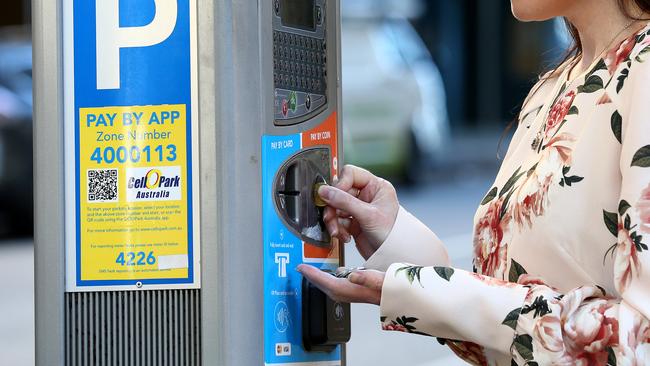Brisbane City Council owed $22.5 million in unpaid fines from past three years
Amid a budget black hole for local governments across Queensland, Brisbane City Council has revealed it’s owed tens of millions in unpaid fines from the past three years.
QLD News
Don't miss out on the headlines from QLD News. Followed categories will be added to My News.
BRISBANE City Council is still owed $22 million in unpaid fines from the last three years amid a collapse in infringements being handed out through the COVID-19 pandemic.
The country’s biggest local government has promised it won’t try to recoup a $6 million drop in fine revenue last financial year, charging only $27.9 million worth of infringements in 2019-20.
Almost $10 million of that remains unpaid after the state government body for enforcing fines suspended work during the pandemic.
How many pets your Queensland suburb adopted
Workers cottage on Bayview Terrace, Clayfield to be partly demolished for childcare centre
A further $13 million however remains uncollected from financial years 2017-18 and 2018-19.
The dramatic drop in fine revenue in 2019-20 was in part due to parking meters being temporarily switched off to assist residents and small businesses through the pandemic.
But the impacts of the pandemic has led the Local Government Association of Queensland to warn that councils across the state will defer important upgrades to community services and job-creating projects.

Brisbane City Council city standards, community health and safety chair councillor Kim Marx said the $22.5 million in unpaid fines accrued over the last three years was “letting down” Brisbane residents.
“Fines are issued because someone has done the wrong thing,” Cr Marx said.
“They should show responsibility for their error and do the right thing by paying their fine,” she said.
“Any money from fines goes straight back into the community and delivers services and infrastructure.”
Revenue from fines fell from $33.8 million in 2018-19 to $27.9 million in 2019-20, a result of less fines being handed out overall.

However, Cr Marx said the $6 million drop in fine revenue collected would not impact on council’s ability to deliver services.
“All funding for key projects, including playground equipment, paths and park lighting, is delivered through the core annual budget,” she said.
“Any fluctuations in infringement revenue has no impact on delivery of core Council services or projects.”
Cr Marx also said “improving behaviours” from residents was also behind a drop in the total number of fines handed out in recent years.
However, Local Government Association of Queensland chief executive Greg Hallam said while fine revenue was a “relatively small part” of budgets, many Queensland councils have been forced to cut major projects amid a squeeze on their finances.
“Many have deferred capital spending in order to ensure they can provide relief to households and businesses and continue to deliver services and maintain their workforces,” Mr Hallam said.
He called on State and Federal governments to help the sector stimulate the economy during the COVID-19 recession.
“Councils only collect about three per cent of total taxation revenues with the Federal Government taking the lion’s share at more than 80 per cent and the State Government raising the rest,” Mr Hallam said.
“Queensland councils are acutely aware of the difficulties facing their communities as we continue to navigate our way through the COVID-19 pandemic,” he said.

